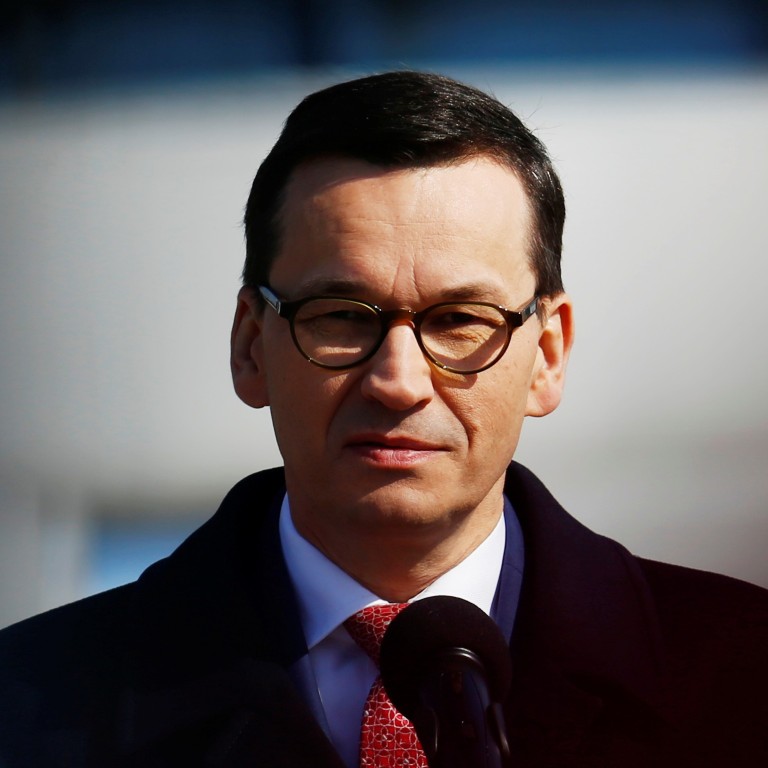
Britain’s Brexit struggles become campaign rhetoric in Poland
- The Polish opposition is warning that the ruling party could try to attempt a Brexit of its own
Poland’s opposition coalition launched its campaign for next month’s European Parliament elections with a threat: Poland’s ruling party could lead the nation toward its own Brexit.
Polish citizens have an overwhelmingly favourable view of the European Union. According to a Pew Research Centre study from last month, 72 per cent have a favourable view of the European Union, and 54 per cent have a favourable view of the European Parliament – the highest of any country surveyed.
Poland’s Law and Justice party, which came to power in 2015, has never actually floated the idea of leaving the European Union. Nevertheless, Law and Justice is sometimes referred to as a euroskeptic party.
The party has run afoul of the European Union for allegedly politicising the judicial system and the country’s media, as well as for refusing to take in asylum seekers.
The Polish ruling party also attempted to stop the reelection of Donald Tusk as president of the European Council; Tusk was previously prime minister of Poland in Civic Platform, now an opposition party.
This is the basis of the claim by the opposition parties’ group, the European Coalition.
“There’s a great choice ahead: either strong, rich, democratic Poland in a strong Europe, or what we see today – party state, on its way to leave the EU,” said Grzegorz Schetyna, leader of Civic Platform, which is a part of the coalition.
After watching Britain’s nearly three-year struggle with implementing Brexit, one-time advocates of leaving the EU across Europe have changed their tune and started campaigning to remain in the bloc, but with reforms.
Poland is perhaps an example of the emergence of another political trend: utilising Brexit as a cautionary tale.
“We’re facing elections to the European Parliament that are the most important elections since 1989,” said Schetyna, referring to the 1989 elections in Poland led to country’s transition to democracy. “Now even more is at stake.”
Next month’s European Parliament elections were meant to be the first post-Brexit elections for the EU’s governing body. However, with the British Parliament still unable to agree on a Brexit deal, if the EU agrees to grant Britain an extension, British candidates will need to run to keep the country’s good standing in the European Union.
Nigel Farage, a long-time member of the European Parliament and a leading proponent of Brexit, told Sky News: “I’ll be leading the Brexit Party into those European elections as it now looks certain they will happen.
“Am I happy about it? No I’m not – actually I’ve got many other things in my life I’d like to do. I thought we’d won the Brexit battle, but I’m not going to after 25 years of endeavour watch British politicians roll us over.”

